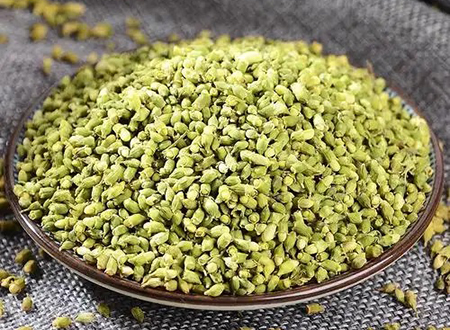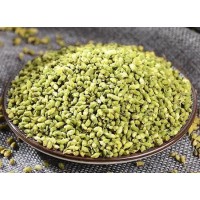Does Sophora japonica extract quercetin have a therapeutic effect on lung nodules?
While the preclinical evidence supporting the therapeutic potential of Sophora japonica extract quercetin on lung nodules is promising, further research is needed to elucidate its specific mechanisms of action and evaluate its efficacy in clinical settings.
Lung nodules are small, round lung growths often detected incidentally during imaging studies. While many lung nodules are benign, some may be indicative of underlying lung cancer or other serious conditions. As such, there is a significant need for effective therapeutic interventions to manage and potentially treat lung nodules. In recent years, there has been growing interest in the potential therapeutic effects of natural compounds, such as quercetin, derived from plants like Sophora japonica, in managing various health conditions, including lung nodules.
Sophora japonica Extract Quercetin
Sophora japonica, also known as the Japanese pagoda tree, is a species of tree native to Eastern Asia. The extract derived from this plant has been found to contain high levels of quercetin, a flavonoid with well-documented antioxidant, anti-inflammatory, and potential anticancer properties. Quercetin has been the subject of numerous studies exploring its therapeutic effects on various health conditions, including its potential impact on lung nodules.

Therapeutic Effects on Lung Nodules
Research investigating the therapeutic potential of Sophora japonica extract quercetin on lung nodules is still emerging. However, preliminary findings suggest that quercetin may exert beneficial effects on lung nodules through several mechanisms. Firstly, quercetin's antioxidant properties may help mitigate oxidative stress and inflammation within the lungs, which are known to contribute to the development and progression of lung nodules. Additionally, quercetin has been shown to inhibit the growth and proliferation of cancer cells in preclinical studies, suggesting a potential role in suppressing the growth of malignant lung nodules.
Furthermore, quercetin has been reported to modulate signaling pathways involved in cell survival and proliferation, potentially influencing the behavior of cells within lung nodules. Its ability to regulate immune responses and modulate the tumor microenvironment also suggests potential immunomodulatory effects that could impact the development and progression of lung nodules.
Clinical Implications
While the preclinical evidence supporting the therapeutic potential of Sophora japonica extract quercetin on lung nodules is promising, further research is needed to elucidate its specific mechanisms of action and evaluate its efficacy in clinical settings. Clinical trials investigating the use of quercetin in individuals with lung nodules are warranted to determine its safety, optimal dosage, and potential therapeutic benefits. Additionally, studies exploring the potential synergistic effects of quercetin with existing treatment modalities for lung nodules may provide valuable insights into its role as an adjuvant therapy.














